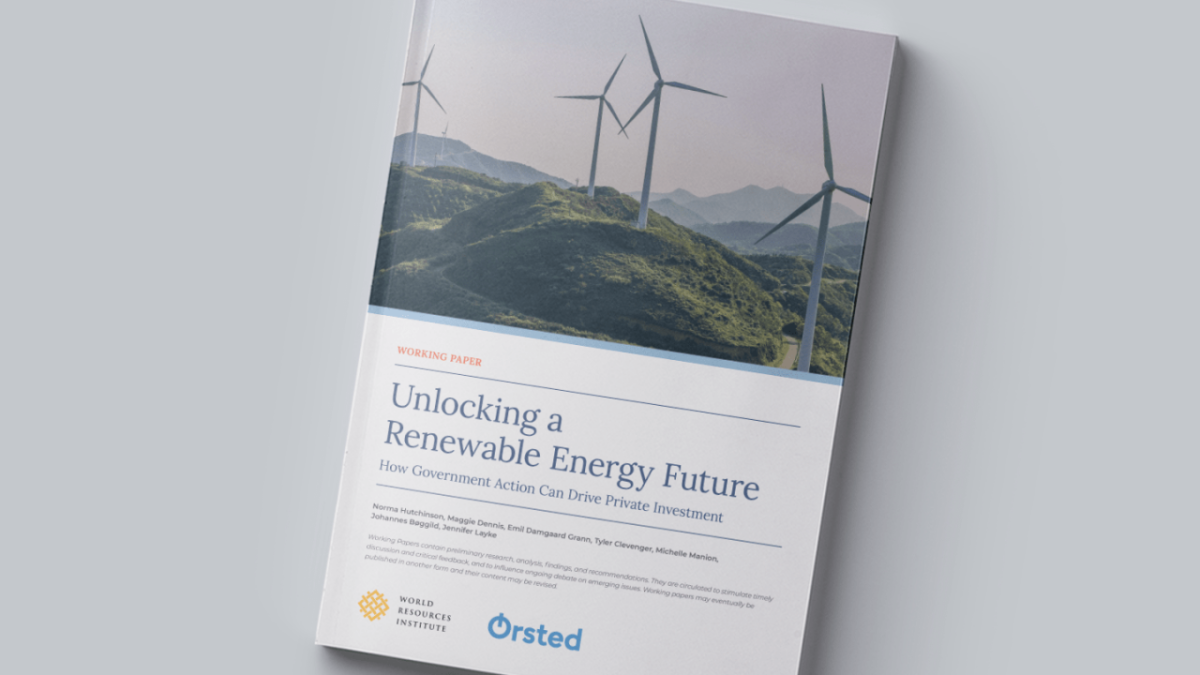World Resources Institute and Ørsted How Governments Can Scale up Private Sector Investment in the Renewable Energy Transition

To achieve a net-zero society by 2050 and a world that runs entirely on renewable energy, policymakers, businesses and investors must level up their collaborative efforts and continue to work together with urgency and focus to rapidly scale up global renewable energy capacity. While the green technologies are readily available, and the investments required are manageable – the energy transition is not happening fast enough to limit the worst effects of climate change. Ahead of COP26, this joint paper by World Resources Institute (WRI) and Ørsted lays out policy solutions to help policymakers take concrete actions now to speed up the energy transition.
The majority of the investment into the energy transition is expected to come from the private sector, and with the costs of solar and wind now lower than ever, there are billions of dollars poised to speed up the energy transition, but the right policies and financial frameworks are not yet in place, the paper states.
“The policies put in place today will determine whether or not we can transition to clean energy fast enough to protect the earth’s climate,” says Jennifer Layke, Global Director, Energy Program at World Resources Institute. “It’s up to governments to set our course to a modern, clean, renewable electricity system and the right market signals to spur private sector action.”
Read the full blog on Ørsted's site

